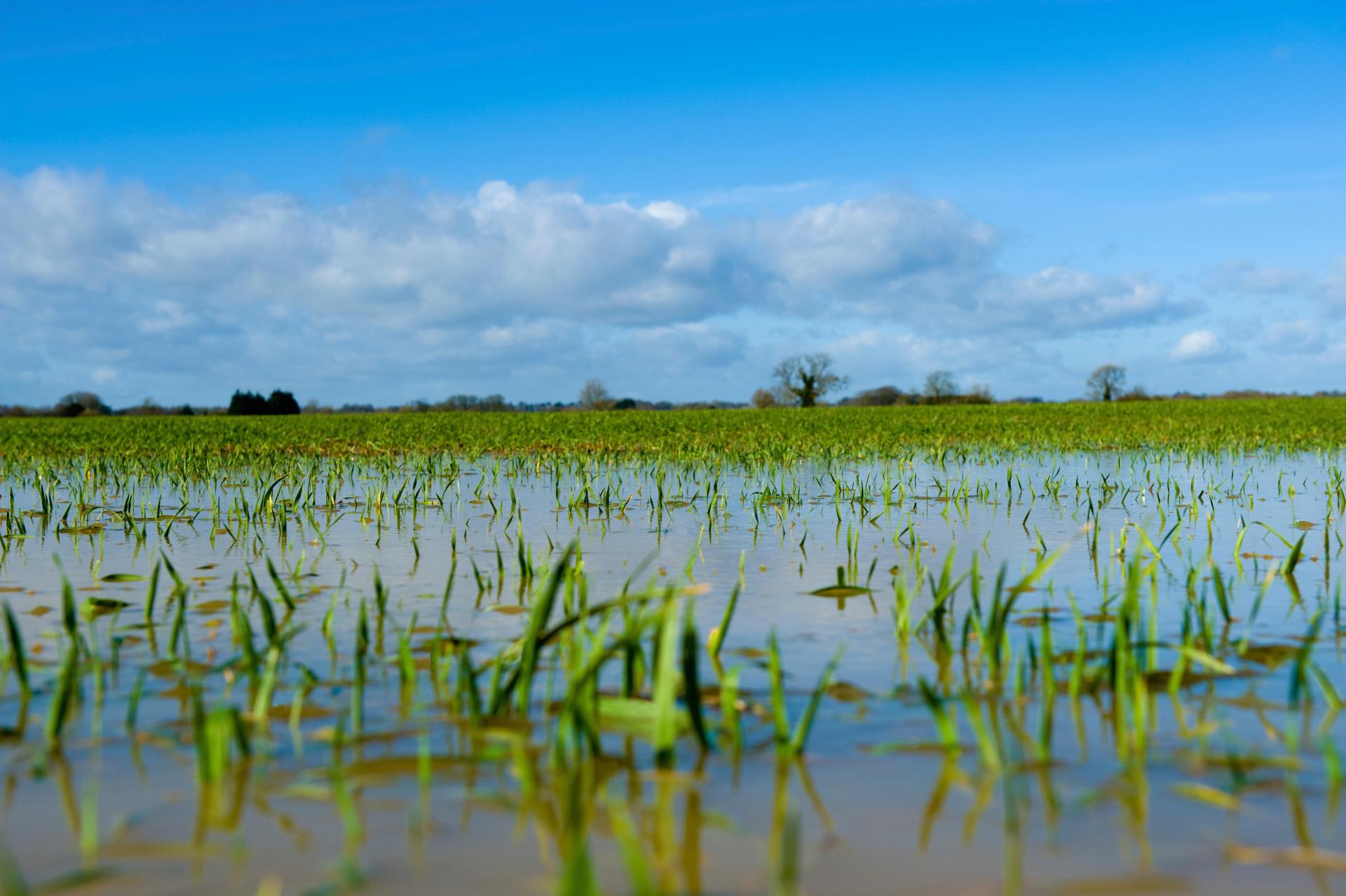
K-Adriatica's eK-lon MAX fertiliser for flood damage

To effectively address flood damage problems, K-Adriatica proposes the use of its eK-lon MAX fertiliser.
Crops affected by flooding face root asphyxia, a phenomenon caused by the accumulation of surface water due to rainfall or irrigation, which leads to an almost complete saturation of empty spaces in the soil, thus depriving the roots of essential air. Root asphyxia not only compromises root aeration, leading to root rot and plant decline, but also induces a change in the ratio of aerobic to anaerobic bacteria in the rhizosphere.
The lack of oxygen then causes an increase in anaerobic bacteria, leading to a decrease in manganese, iron and sulphur levels and thus initiating denitrification processes, resulting in a loss of nitrogen available for cultivation and a reduction in the solubility of elements such as zinc, copper and cadmium. In situations of prolonged stagnation, increases in toxic substances such as sulphides or methane occur, which further deteriorate soil conditions. In this unfavourable environment, the root tips accumulate acetaldehyde and ethanol, and ethylene and abscisic acid are then synthesised: this leads to the closure of the leaf stomata and a significant reduction in photosynthetic activity. The situation is then aggravated by the plant's increased vulnerability to pest attacks. The extent of these effects depends on the degree of oxygen deficiency and the duration of stagnation.
This is how many plants develop shallow roots: while this indicates an increase in metabolic activities, it also makes them less resistant to the dry spells that often follow water accumulation, lacking a solid anchorage to the soil. In situations where the correct soil surface arrangement and drainage system are inadequate to deal with excess water, it is essential to address crop damage. This is also in view of the repercussions these events may have on the following year, as in the case of fruit crops.
From a nutritional point of view, it is essential to intervene in order to limit the damage and meet the new needs of the crop, which, living in altered conditions compared to normal, certainly experiences significant stress. In this context, K-Adriatica presents itself as an ally in meeting the challenges of flood damage.
The sine qua non is to keep water stagnation away from the rhizosphere, and this is where the nutritional support offered by K-Adriatica fertilisers comes into play: based on the nature of the soil, considering its structure, pH and endowment in organic substance, K-Adriatica fertilisers are designed to provide the plant with the nutritional elements lost due to denitrification and/or insolubilisation.

K-Adriatica recommends the application, via foliar or root application, of eK-lon MAX, a 100% natural extract of Ecklonia maxima.
Through extensive trials on different crops, K-Adriatica's eK-lon MAX fertiliser has been shown to promote root development due to its composition rich in natural growth regulators such as auxins and florotannins such as floroglucinol and eckol. Furthermore, K-Adriatica's eK-lon MAX fertiliser is designed to help plants overcome stressful conditions due to the presence of polysaccharides such as alginates, laminarines, fucoidans, mannitol, amino acids and vitamins.
The application of K-Adriatica's eK-lon MAX not only improves the efficiency of microbial products, but is also a strategy recommended by K-Adriatica to restore the correct balance in the microbial flora of the rhizosphere.







